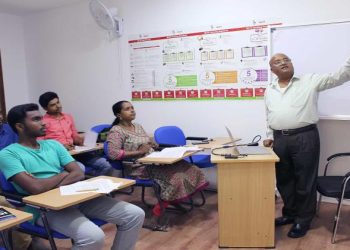The current affairs section of the UPSC Exams is a crucial segment as it tests the dynamic knowledge of the candidates involved. But since current affairs in itself is a vast topic, it is difficult to focus on a wide array of topics.
Keeping this in mind, the article will give details about the important topics for current affairs as well as a brief reading about the trends of current affairs in the UPSC Exam.
Current Affairs Trends in the UPSC Exam
As per the trends in the ensuing years, the current affairs segment in the prelims exams shows that about 20-30 questions have been asked in this segment. This shows that current affairs are a crucial part of the prelims exam and, thus, also a deciding factor that will ensure success in the UPSC Exam overall
It’s not just prelims exams, the current affairs is also a part of the mains exam. But the approach of solving the mains paper with regard to current affairs involves a different strategy altogether. With respect to UPSC mains, it also helps to develop analytical and logical thinking on different topics like international relations, politics, economy, etc.
Current affairs not only help in tackling these questions but also help in managing to score good marks when they are included in the answers. Certain static portions, such as history and geography, will become wholesome if the answers are combined with current affairs.
In the interview stage, a UPSC candidate’s knowledge is tested with regard to their capability to deal with many different real-life scenarios. Apart from theoretical knowledge of various topics, and optional subjects, candidates are expected to be aware of events inside or outside the country, as well as that of other scientific knowledge such as new discoveries, historical events, etc.
Since current affairs are dynamic in nature, the section has become an essential part of the civil services exam. An ideal candidate is expected to cover the current affairs section in their preparation phase. Now that has been cleared, we will have a look at the main focus topics for the UPSC current affairs.
Focus topics of UPSC current affairs
- Polity: Topics related to the politics of India, such as the constitution, Rajya Sabha, Lok Sabha, Bills and Acts, governance, fundamental rights, social issues, centre-state relations, etc.
- Economics: Topics having to do with the Indian economy, international reports on the world economy, indices, banking, finance, unemployment, poverty, economic policies, banking reforms, banking policies, future economic policies and reforms, inequality in income, sectors of the Indian economy, etc.
- Environment: Topics of interest related to biodiversity, wildlife, environmental condition at the global and local levels, facts about wildlife protection organisations such as IUCN, conservation efforts, climate change, etc.
- Art and Culture: Art and culture will involve national heritage sites and monuments, conservation, national festivals, regional festivals, dance forms, heritage conservation, paintings, etc.
- Science and Technology: Scientific developments in recent years, the Indian Space Programme, artificial intelligence, biotechnology, communication technology, the contributions of Indians in the same field, etc.
What are the primary sources for current affairs?
The sources of current affairs can be magazines like Manorama Yearbook, Pratyoggita Darpan and newspapers like The Hindu and as well as the internet. But as mentioned above, current affairs are vast topics, the sources must also be limited, as it can take a long time to cover them all, time that is limited to candidates preparing for the exam.
In the event that the candidate is ready to give their all in the upcoming civil services 2023 exam, the UPSC Online page is the best place for candidates to apply for the exam as well as gather crucial information regarding the same





